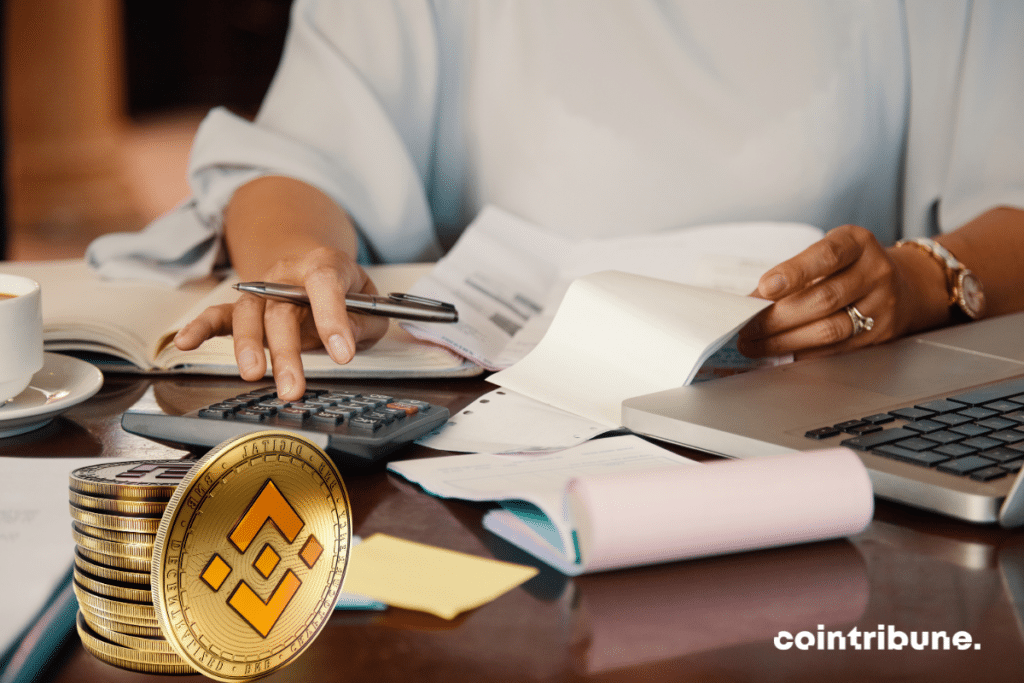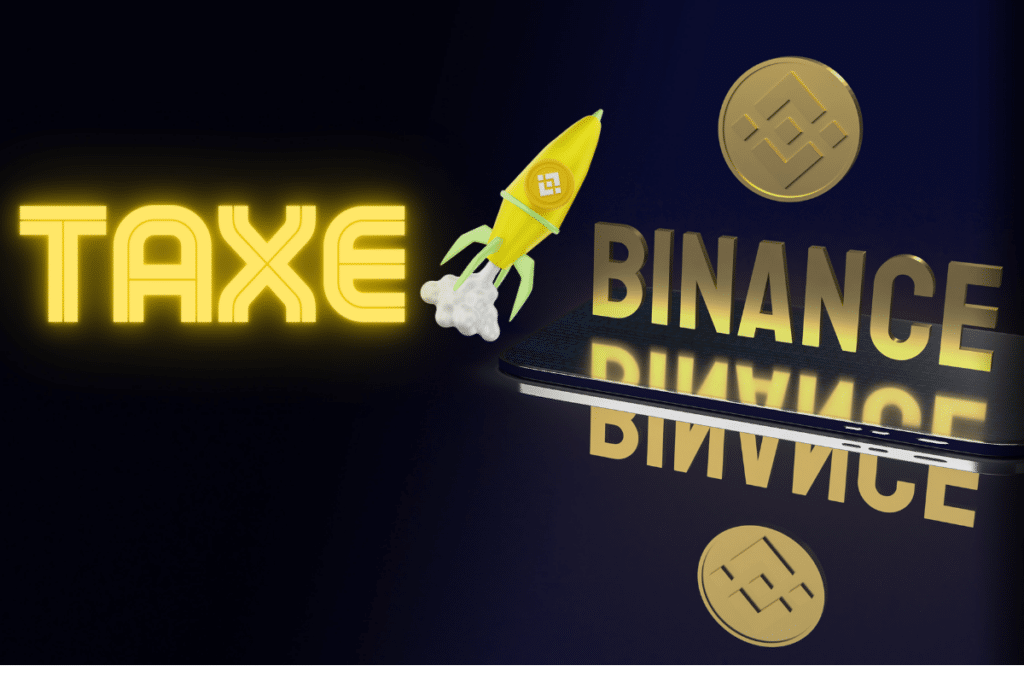How do you declare your Binance account for French tax purposes?
The notorious tax filing period can be stressful for many people in France. Just like with other forms of income, you must declare your digital assets to the tax authorities. Whether you are an employee or a self-employed worker, you need to be aware of the tax obligations related to your crypto activities and ensure you fulfill them properly. Taxpayers are required to report their cryptocurrency holdings on various platforms, including Binance. Today, we will cover the ins and outs of declaring a Binance account. We will provide detailed information and practical tips to help you avoid common mistakes and optimize your tax situation. So, without further ado, let’s embark on our journey into the world of cryptocurrency taxation.

Understanding Cryptocurrency Tax Regulation in France
In France, cryptocurrencies are considered digital assets and are subject to taxation, just like any other asset you might own. If you make a profit by selling cryptocurrencies, you must declare it to the tax authorities. Failing to report your Binance account and all your earnings could lead to severe penalties. Therefore, it is crucial to be aware of your tax obligations.
In France, cryptocurrency gains are subject to a “flat tax,” a fixed tax rate of 30%. This means you pay 30% tax on your profits, regardless of the amount of the gains. However, there are exceptions to this rule. For example, if your gains are less than 305 euros, you are not taxed.
How to Declare a Binance Account to the Tax Authorities
Now that we understand the cryptocurrency tax regulations in France and the importance of complying with them, let’s look at the steps to declare a Binance account to the tax authorities. Here’s a simplified summary of the entire process.
Collecting Information
Gather all necessary information regarding your account. This may include account statements, transactions, balances, transaction fees, and the date your Binance account was opened.
Evaluating Capital Gains
Determine if you have realized capital gains by selling cryptocurrencies. Calculate the profit by subtracting the acquisition cost from the sale amount. Keep accurate records of these calculations for future tax filings.
Filling Out Tax Forms
After evaluating the capital gains, it’s time to complete the tax forms. These forms may vary depending on the country’s requirements. To declare your account and crypto gains in 2023 in France, you will need three forms: the Cerfa 2086 annex, the Cerfa 2042 C, and the 3916 bis form. The Cerfa 2086 annex is used to detail the calculation of your transactions. This form helps determine any taxable profits or losses.
You need to declare the amount of your capital gains or losses in boxes 3AN or 3BN of the Cerfa 2042 C form. Finally, you must also correctly fill out the 3916 bis form, which is mandatory if you have a crypto account on a foreign exchange like Binance. You can find these forms on the tax website and either fill them out online or print and mail them.
Declaring Transactions and Balances
Include details of your transactions and your account balance in the appropriate sections of the tax form. Refer to your account statements and the information gathered in step 1 to ensure accurate reporting.
Verification and Submission
Carefully check your tax declarations to ensure the accuracy of the information provided. Once satisfied, submit your declarations in accordance with the deadlines and methods specified by the tax authorities.
Specifics of Binance Tax Declaration
There are some specifics related to declaring Binance that you need to be aware of.
Changing Your Address on Binance: Tax Implications
If you change your address, you need to update this information on your account. This is important because your address may have tax implications. For example, if you move to a country with different tax rules, it may affect how you declare your cryptocurrency gains.
Binance Account Number: How to Find It and Why It’s Important for Your Declaration
The Binance account number is a key element of your declaration. It is the unique identifier of your account on the platform. Here’s its importance and how you can find it.
How to Find Your Account Number
To find this number, log in to your account using your credentials (username and password). Once logged in, go to your user profile. You can usually find this option by clicking on your username or by searching for a “Profile” or “Settings” section. In your user profile, look for specific account details such as verification information, deposit and withdrawal addresses, and the account number.
The account number is usually displayed as a unique alphanumeric string. Once you find your account number, make a note of it. You will need it for your declaration to identify your account and link it to your transactions and balances.
The Importance of the Binance Account Number
The account number is important for tax declarations because it allows the authorities to identify you and trace your cryptocurrency trading activities on the platform. By providing your account number in your declaration, you clearly indicate the transactions and balances related to your account.
The goal of the tax declaration is to provide accurate information about your income, capital gains, and other financial activities. By providing your account number, you ensure compliance with tax transparency requirements.
How to Optimize Your Cryptocurrency Tax Declaration
Now that we’ve covered the basics of declaring Binance for tax purposes, let’s explore how you can optimize your declaration to minimize your tax liability. You might consider using stablecoins to minimize your tax burden. Stablecoins are cryptocurrencies whose value is tied to a stable asset, such as the US dollar or the euro. They can be an interesting alternative to minimize your taxation.

If you sell your cryptocurrencies for stablecoins, you are not taxed on this sale. This can be a useful strategy to “lock in” your profits without having to pay taxes. Also, explore available tax benefits for cryptocurrency holders, such as tax deductions for mining expenses or tax exemptions for cryptocurrency transactions.
Finally, consider consulting a tax professional to successfully declare your account. If you’re unsure about tax rules or have complex transactions, seek advice from tax professionals specializing in cryptocurrencies. They can provide personalized advice and help you optimize your declaration.
Binance Account Declaration: New Changes to Be Aware of in 2024
Tax regulations are evolving, and many changes are observed. The tax administration will now try to better distinguish between individual and professional investors. To do this, they will consider parameters such as trading tools used, the level of automation of transactions, and the complexity of transactions.
Since January 1, 2023, occasional investors now have the option to choose between the “flat tax” and the progressive capital gains tax rate. This change does not apply to traders taxed at 30% or 45%, as the case may be. Another major change is that instead of the BIC (industrial and commercial profits) tax, professional investors will be subject to the BNC (non-commercial profits) tax. Therefore, take these changes into account to successfully declare your account in 2024.
Frequently Asked Questions about Binance Account Tax Declaration
Here are some frequently asked questions about declaring Binance accounts for tax purposes.
What Are the Key Dates for the 2024 Tax Declaration?
The tax filing season occurs annually, usually starting in April and ending in May. The 2023 tax filing season began on April 6 and ended on June 7 at midnight. Note that filing dates may vary depending on the department of residence. The precise dates for the 2024 season will be announced later by the tax administration.
How to Declare Cryptocurrency Gains Less Than 305 Euros?
If your gains are less than 305 euros, you are not taxed. Therefore, declaring these capital gains is not mandatory.
What Is the Taxation on NFTs?
NFTs, or “Non-Fungible Tokens,” are also considered digital assets and are subject to cryptocurrency taxation. If you sell an NFT and realize a gain, you must declare this gain and pay taxes on it.
Conclusion
Declaring a Binance account allows the tax authorities to review your cryptocurrency trading activities and assess your tax obligations based on your income and gains. By fulfilling these obligations, you avoid potential issues with the tax administration and contribute to tax transparency. Make sure to carefully follow the steps to find your account number in your user profile and record it accurately. Follow the advice in this guide and take the necessary steps to properly declare your account. This will help you comply with tax regulations in the cryptocurrency domain. If you’re not yet taking advantage of CZ’s exchange services, check out our guide on how to create a Binance account. It provides all the information you need to register independently on the platform. Finally, if the exchange’s services no longer meet your needs, read our article on how to delete a Binance account to learn the procedure for leaving the platform properly.
Maximize your Cointribune experience with our "Read to Earn" program! For every article you read, earn points and access exclusive rewards. Sign up now and start earning benefits.
Diplômé de Sciences Po Toulouse et titulaire d'une certification consultant blockchain délivrée par Alyra, j'ai rejoint l'aventure Cointribune en 2019. Convaincu du potentiel de la blockchain pour transformer de nombreux secteurs de l'économie, j'ai pris l'engagement de sensibiliser et d'informer le grand public sur cet écosystème en constante évolution. Mon objectif est de permettre à chacun de mieux comprendre la blockchain et de saisir les opportunités qu'elle offre. Je m'efforce chaque jour de fournir une analyse objective de l'actualité, de décrypter les tendances du marché, de relayer les dernières innovations technologiques et de mettre en perspective les enjeux économiques et sociétaux de cette révolution en marche.
The views, thoughts, and opinions expressed in this article belong solely to the author, and should not be taken as investment advice. Do your own research before taking any investment decisions.